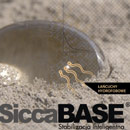Creating a gardening space that harmonizes with nature is a rewarding endeavor. By adopting eco-friendly practices, anyone can cultivate a beautiful and productive garden while being kind to the environment. These methods not only benefit the planet but also enrich personal well-being and contribute to a healthier lifestyle.
One of the cornerstones of a sustainable garden is organic gardening. This approach eschews synthetic chemicals and promotes the use of natural inputs to foster plant growth. By focusing on methods that work in harmony with local ecosystems, gardeners can cultivate plants that thrive in their specific environments.
A key benefit of sustainable gardening is the enhancement of soil health. Healthy soil is teeming with life, providing nutrients and support for plants. Implementing practices such as composting and crop rotation boosts soil composition and promotes biodiversity, resulting in a flourishing garden that nourishes both plants and the earth.
Selecting Native Plants for Your Garden
Choosing native plants for your gardening space significantly contributes to soil health while promoting local biodiversity. Native species have adapted to the specific conditions of your region, making them more resilient to local pests and diseases.
When selecting plants, consider their water and sunlight needs. Native plants typically require less irrigation, reducing water usage and promoting sustainable practices. This selection enhances soil health through deeper root systems, which help prevent erosion and improve nutrient cycling.
Engaging with local gardening communities or resources can provide valuable insights on the best native plants for your area. Native plant nurseries often offer a range of species suitable for different soil types and environmental conditions. Incorporating various plants also helps create a balanced ecosystem, supporting pollinators and other wildlife that play vital roles in maintaining healthy soil.
Fostering a diverse planting strategy not only beautifies your space but also contributes to the overall health of the environment. By prioritizing native plants, gardeners can create spaces that thrive naturally and sustainably.
Implementing Rainwater Harvesting Techniques
Rainwater harvesting is a practical approach to enhance soil health and support plant selection in your sustainable gardening space. By collecting and using rainwater, gardeners can reduce dependence on municipal water supplies and ensure a consistent moisture source for their plants.
To implement rainwater harvesting, consider installing a rain barrel at a downspout. This simple system captures runoff from roofs, allowing you to store water for dry spells. Ensure that your rain barrel has a secure lid to prevent mosquito breeding and debris contamination.
Another technique involves creating a rain garden. This specialized feature allows rainwater to naturally permeate the ground, rather than run off. By designing the rain garden with appropriate eco-friendly practices, you can enhance the beauty of your space while improving drainage and reducing erosion.
Incorporating rainwater harvesting into your garden design not only promotes sustainability but also nurtures a thriving ecosystem. You can utilize collected water for watering, thus maintaining moisture levels and reducing strain on local water resources. For more insights on eco-friendly gardening, visit https://spartanlifeblog.com/.
Utilizing Composting for Soil Health
Composting is a fundamental practice for enhancing soil health in any sustainable gardening space. By recycling organic waste, gardeners can produce nutrient-rich compost that significantly improves soil quality.
When incorporating compost into your garden design, consider a balance of green materials, such as vegetable scraps and grass clippings, and brown materials, like dried leaves and branches. This combination promotes a healthy decomposition process and enriches the soil with essential nutrients.
In addition to boosting soil health, composting contributes to eco-friendly practices by reducing waste sent to landfills. It also minimizes the need for chemical fertilizers, creating a more sustainable environment for plants to thrive.
Applying compost not only enhances the physical structure of the soil but also encourages beneficial microorganisms that support plant growth. Regularly adding compost to your garden will help maintain a thriving ecosystem, ensuring both productivity and ecological balance.












